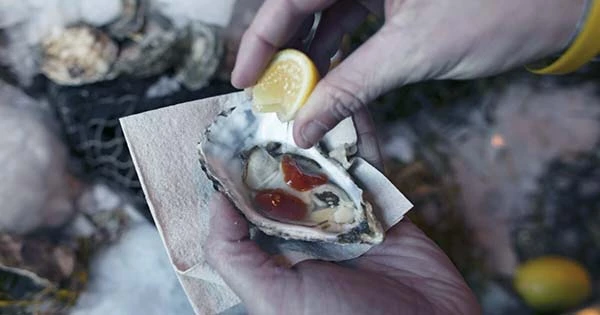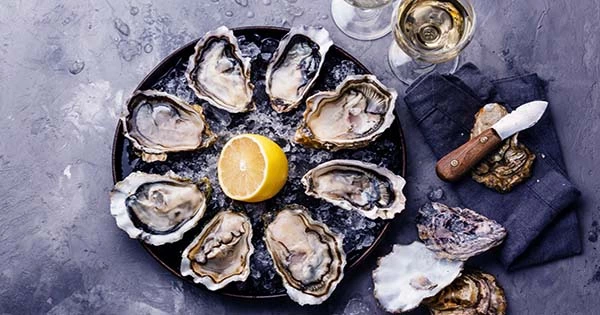Oysters have a long-standing reputation for boosting lovers’ libido, in addition to being a reliable source of food sickness. Is there any proof to back up this assertion, or is it merely the stuff of dating advice columns and seafood marketing websites? Slurping oysters to improve sexual performance has a long history. Some believe they were the preferred aphrodisiac of Roman Emperors, while others say, Giacomo Casanova, the legendary 18th-century lover-boy, ate hundreds of oysters every morning to get ready for the day.
Tabloid tabloids will continue to print stories stating, “Experts establish, beyond a shadow of a doubt, oysters make you horny” and similar claims centuries later. These reports, however, are not always as straightforward as they appear. Zinc is at the core of a lot of the buzz. Oysters have significantly more zinc than any other meal, with a cooked 3-ounce serving having 74.1 milligrams of the mineral or 673 percent of the required daily dose.

A mineral is necessary for male fertility and sexual function. Zinc supplementation has been shown to improve sperm quality in some studies, while low levels of the mineral have been linked to lower testosterone levels and sperm quality issues in others. Testosterone is a key sex hormone that regulates a variety of functions, including desire. It is generated in the testicles in males and has a role in sperm production, but it has also been produced in minute amounts in women’s bodies, influencing their sex desire.
D-Aspartic acid was discovered to be particularly abundant in bivalve mollusks (marine and freshwater mollusks such as clams, mussels, scallops, and oysters). This amino acid can aid in the creation of testosterone by increasing the release of a hormone in the brain. However, there is very little evidence that these meals and their nutrients are directly linked to greater sex desire or “better” sexual performance.
If there are any advantages to obtained, which far from proved, they are most likely the favorable effects of a long-term balanced diet; drinking oyster after oyster one evening is not going to do anything for your health, but a broad and nutrient-rich diet will. Therefore, if you are on a romantic date with one goal in mind, there is no nutritional evidence that ordering oysters would improve your plans for later that evening. Let us not, however, underestimate the mind’s power.
Placebos well known for their ability to increase sexual desire, given the cultural significance and lengthy history of oysters as an aphrodisiac, it is possible that their much-hyped benefits are not merely a marketing ploy. In 2016, Nancy Amy, a nutritionist and toxicologist at the University of California, told WIRED, “There’s an unbelievable placebo effect with aphrodisiacs.” “It’s really culturally particular, and there’s no scientific evidence,” she says, “but if you think it’ll work, there’s already a 50% chance it will.”












